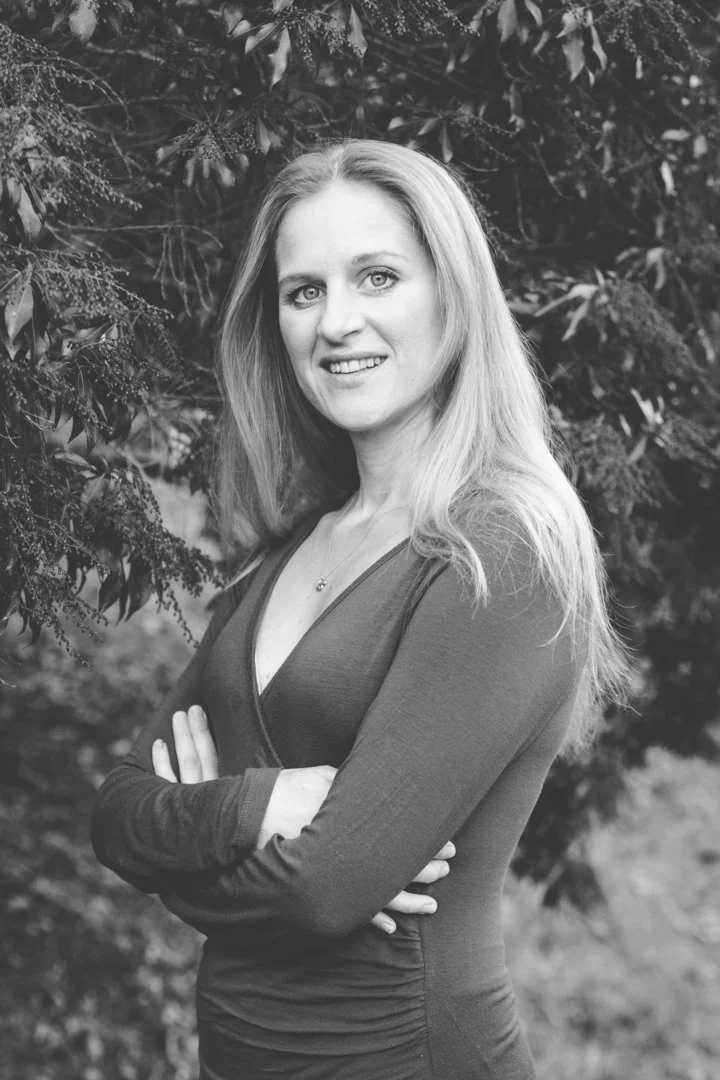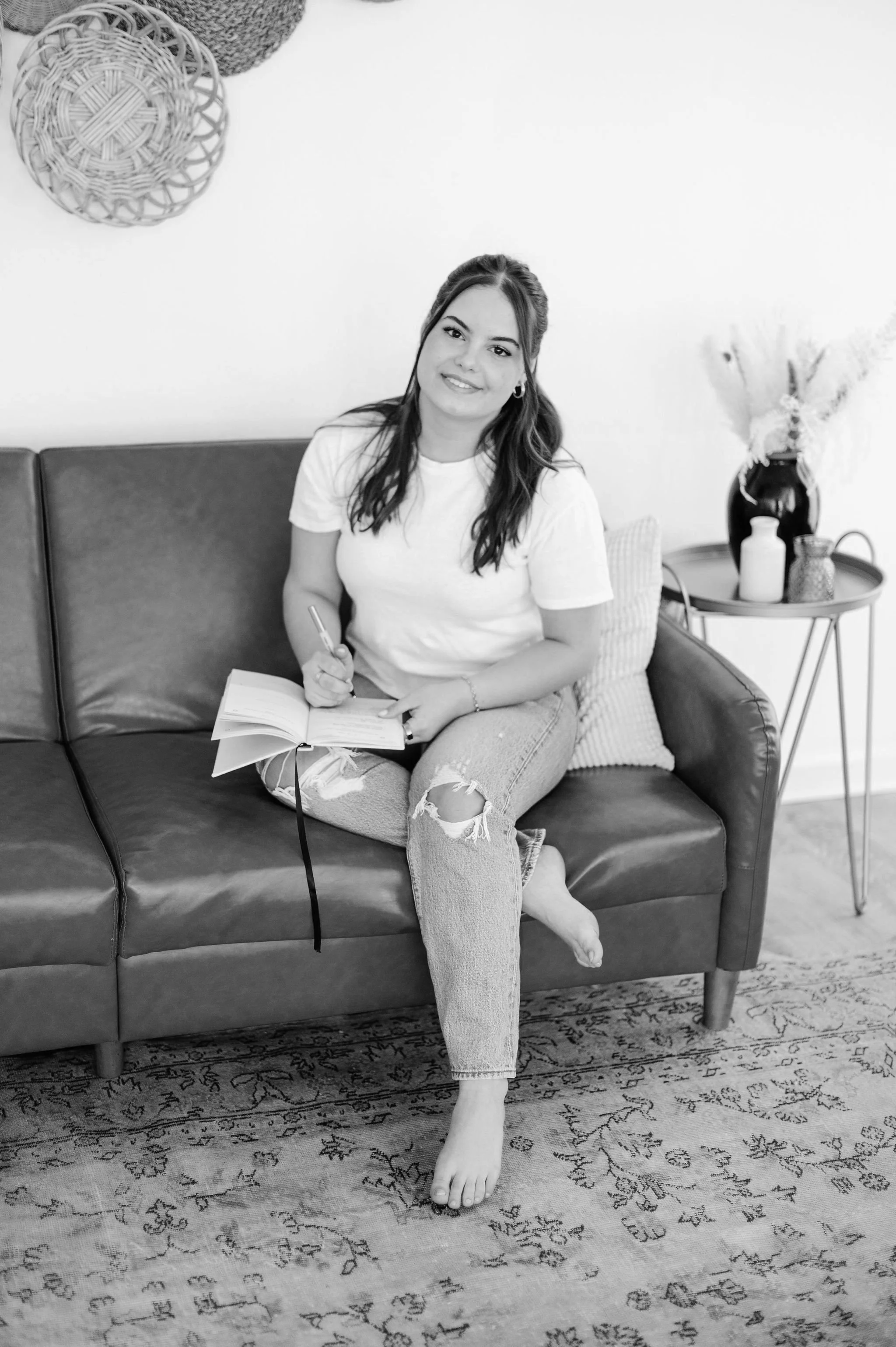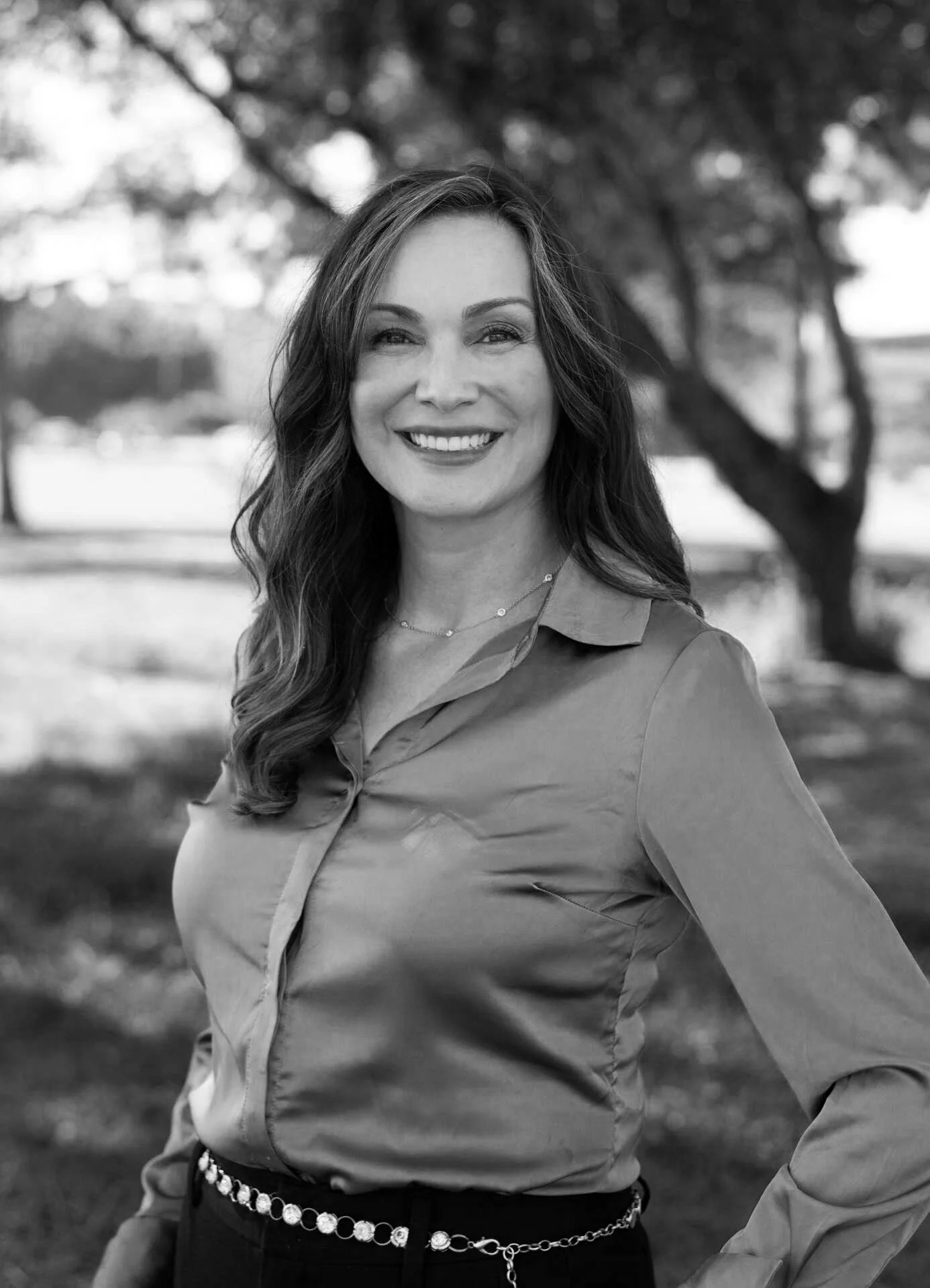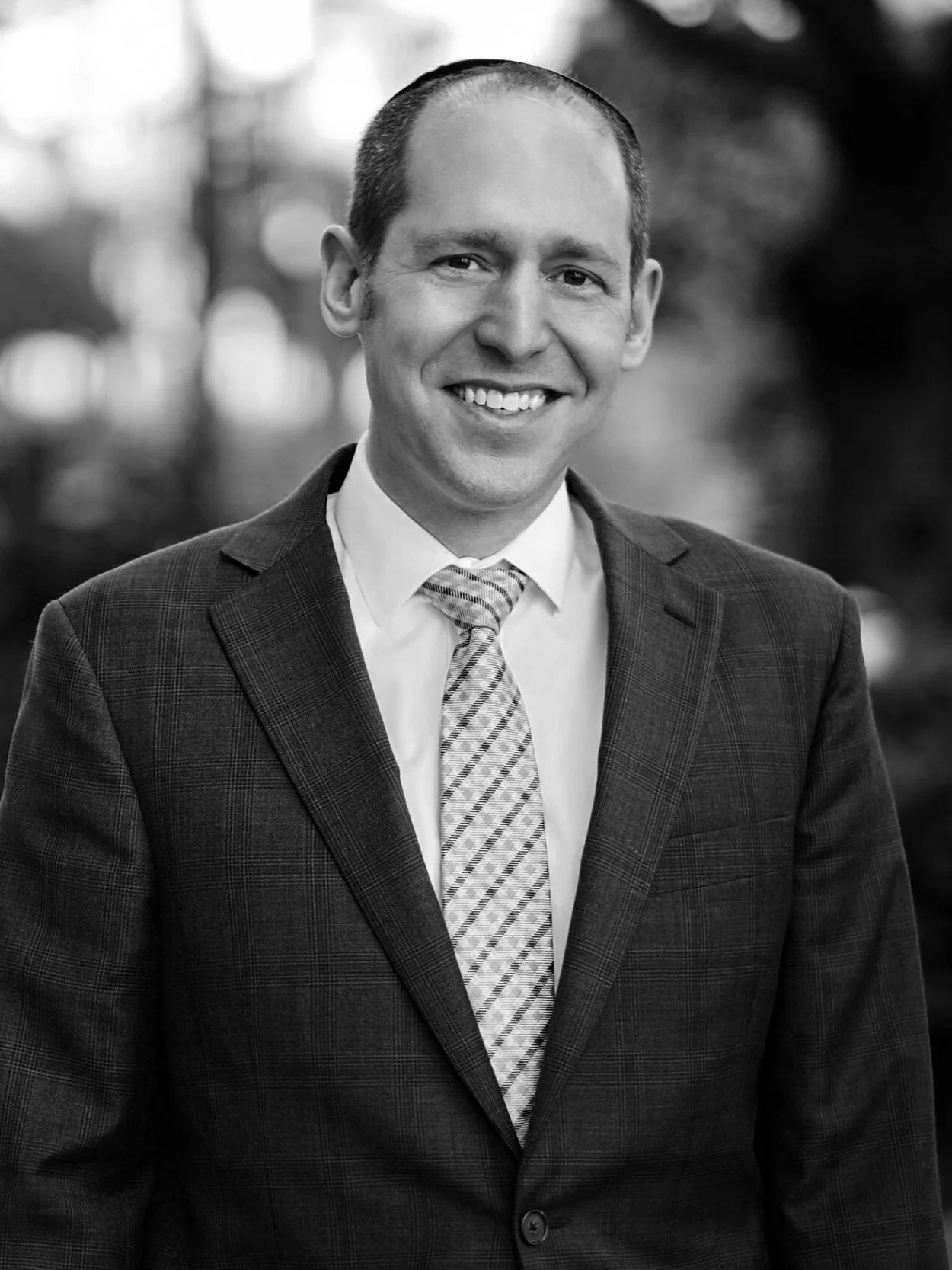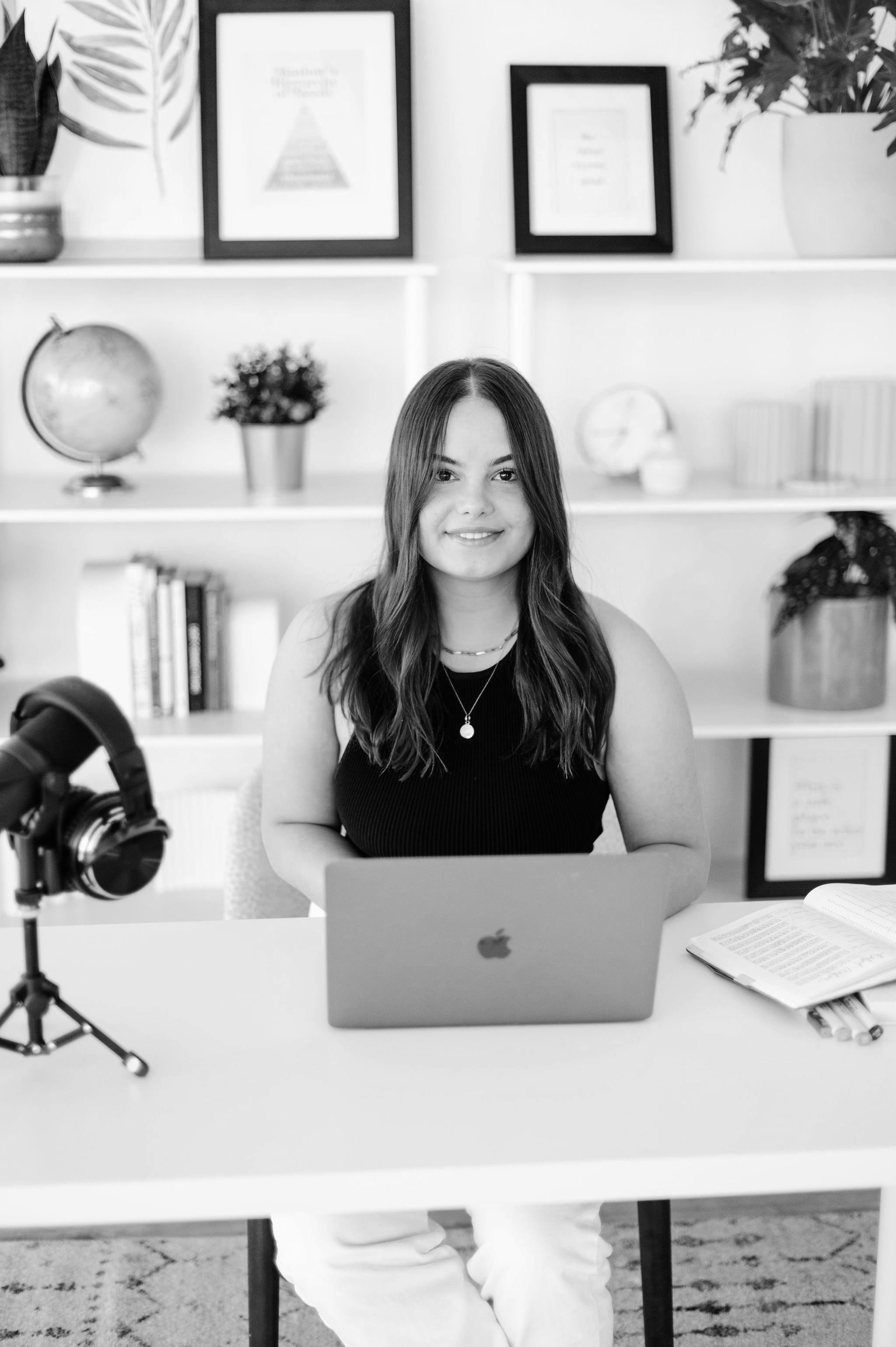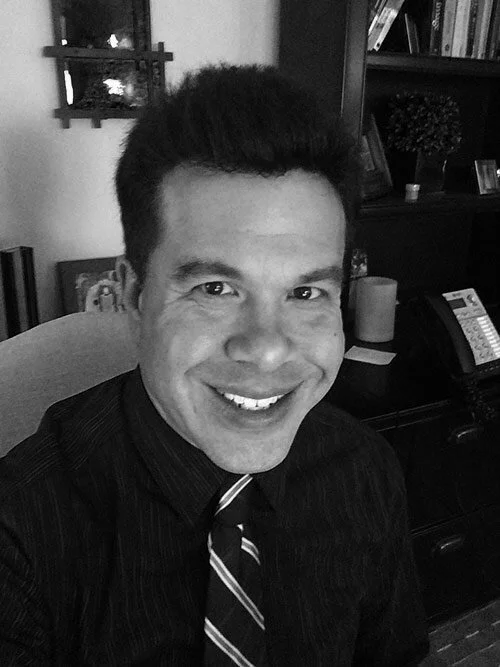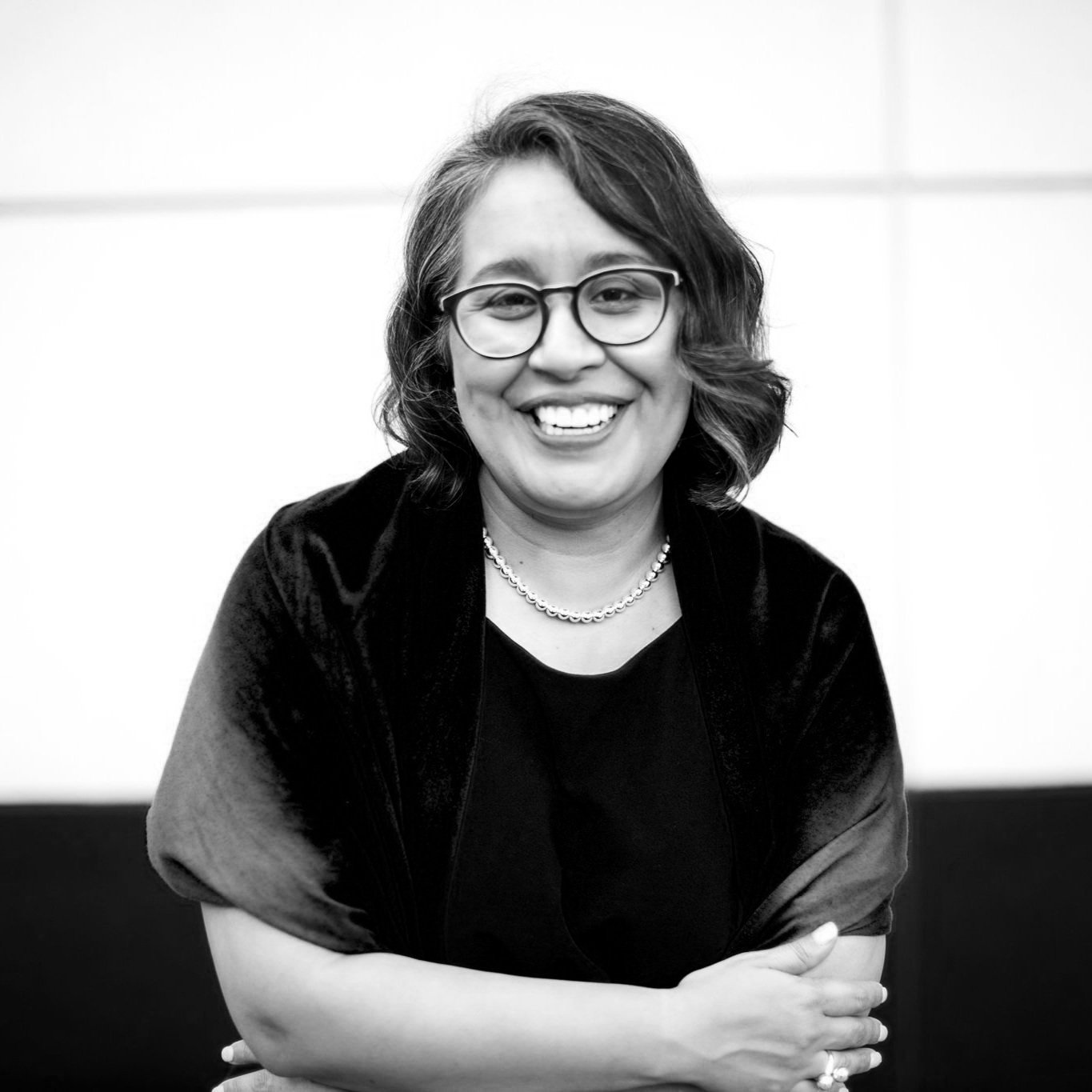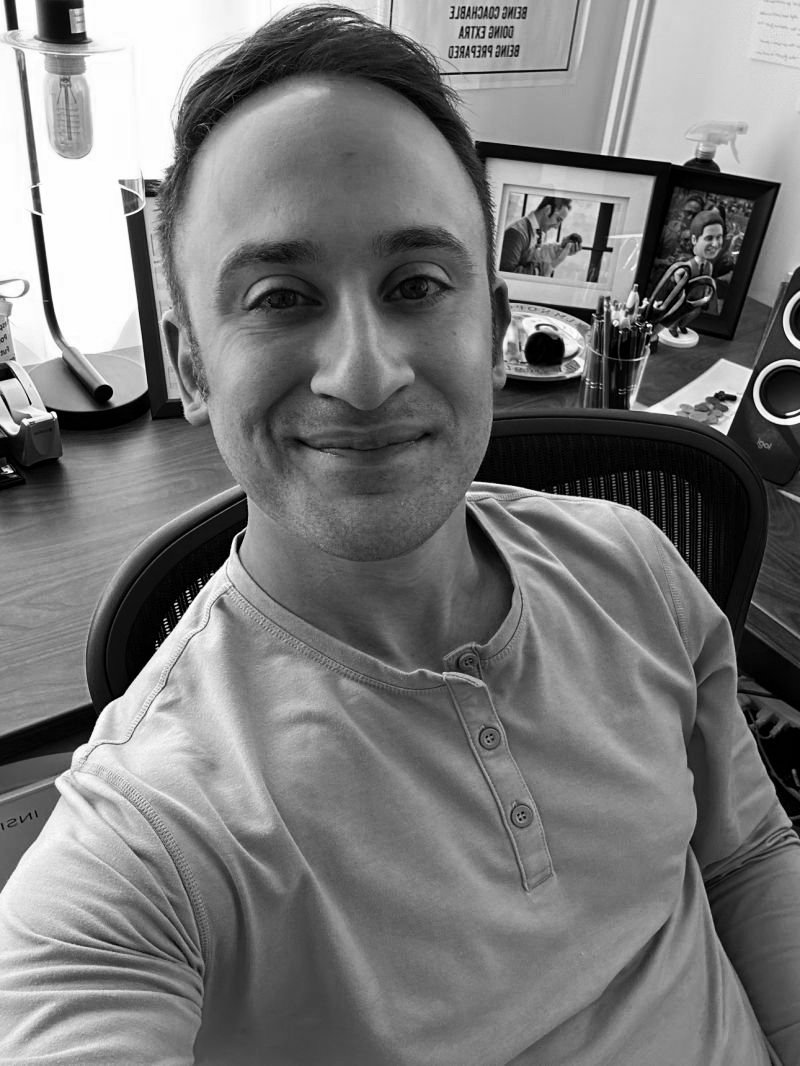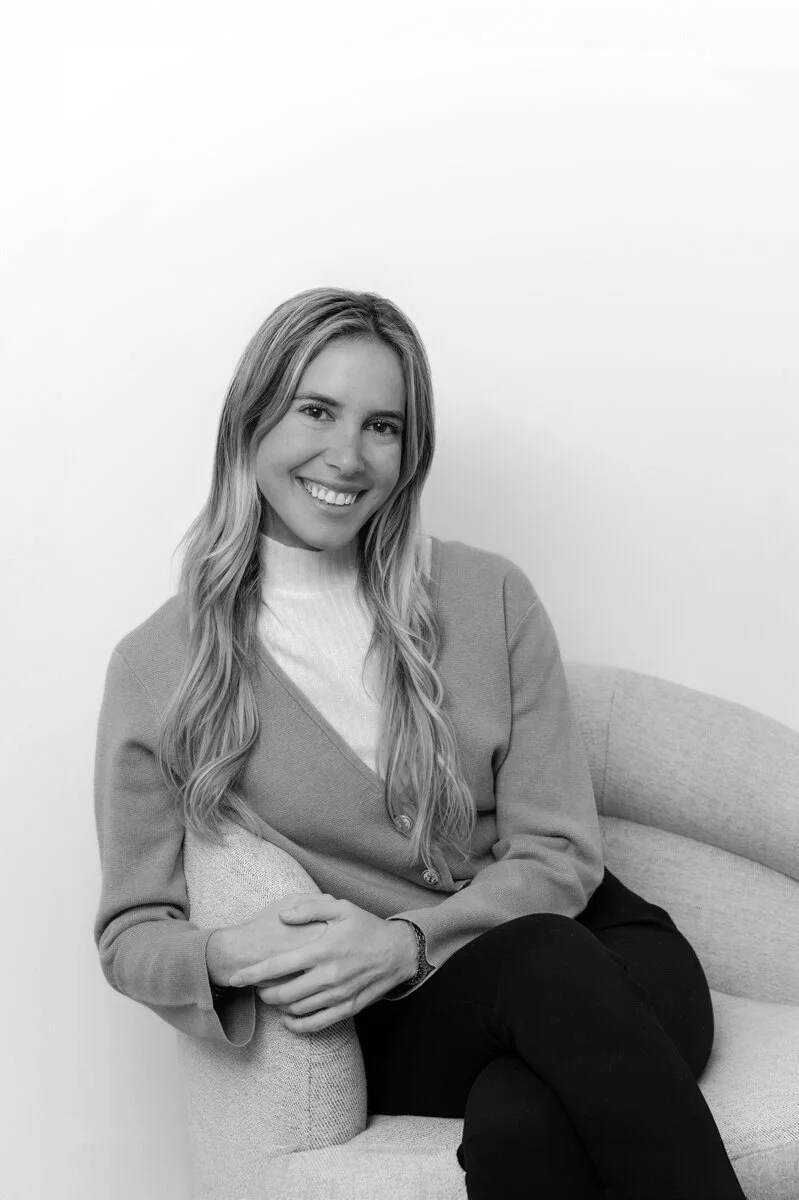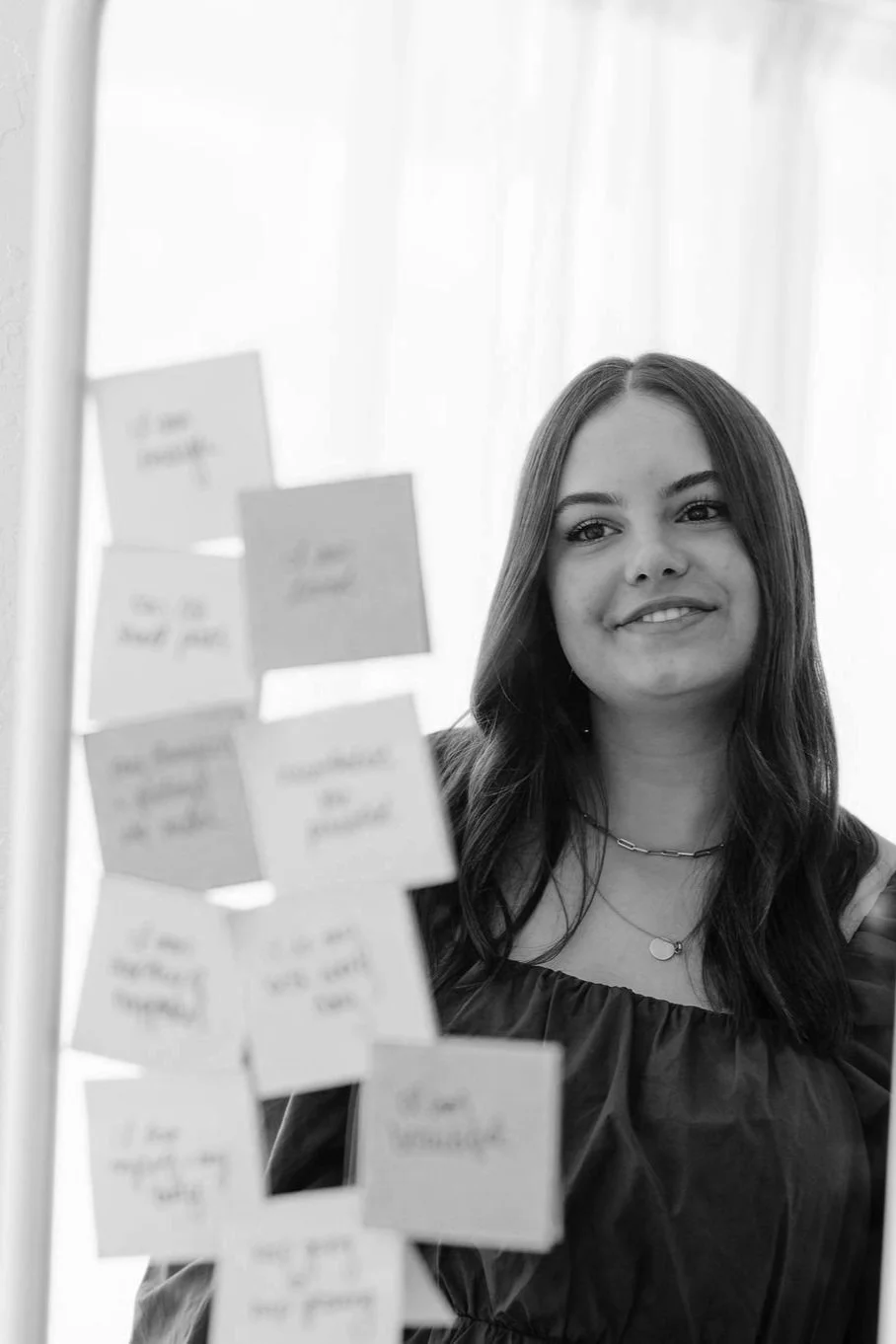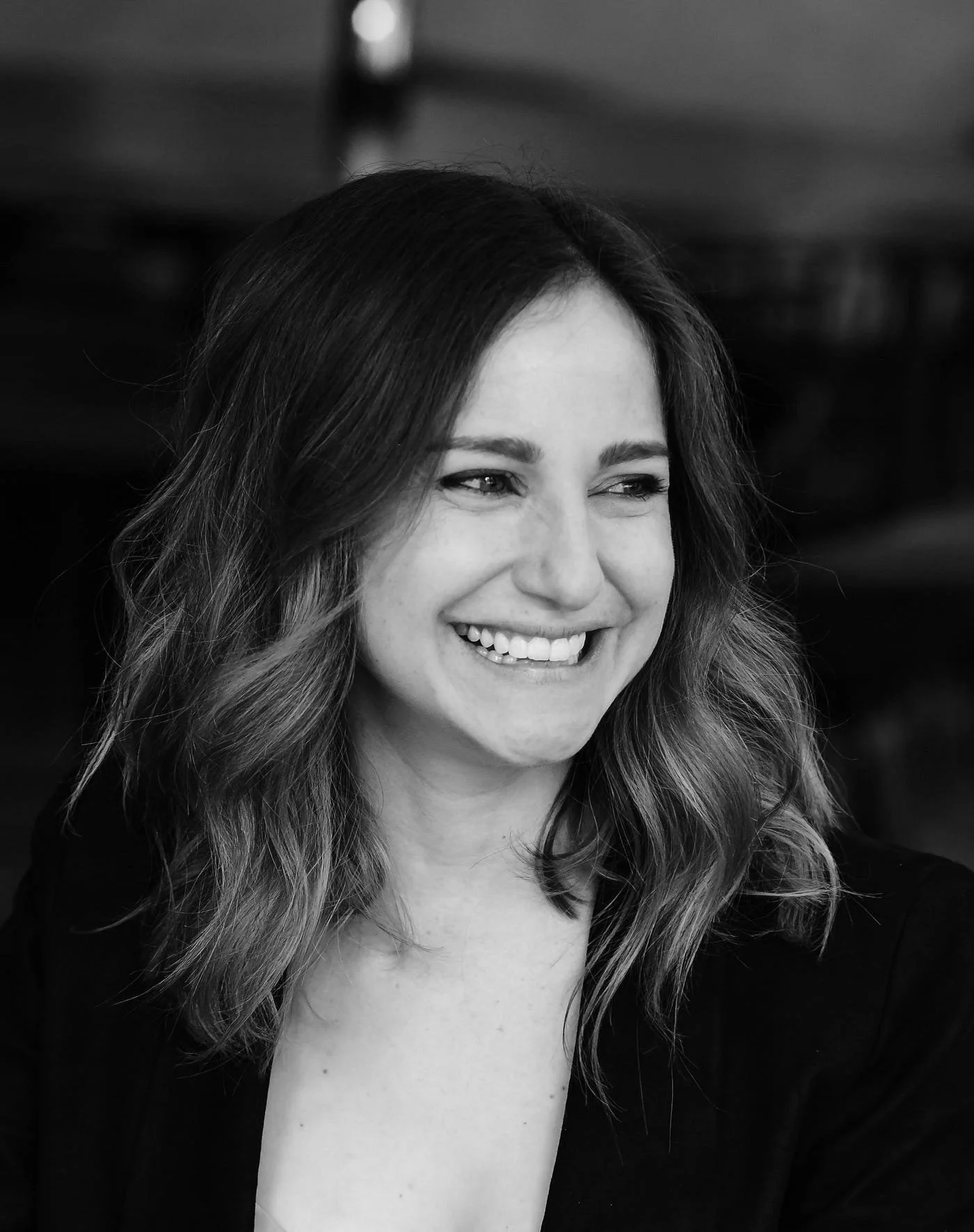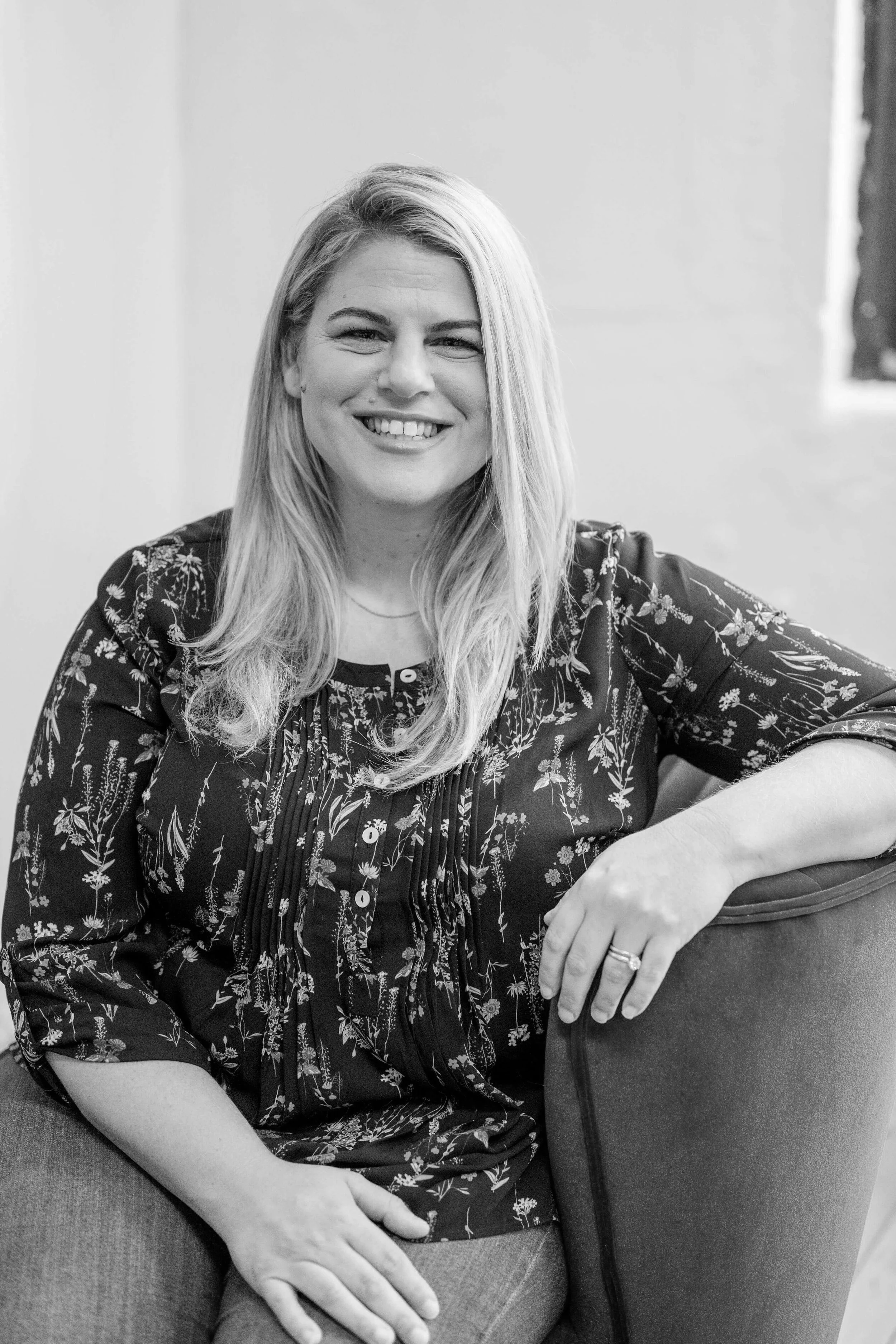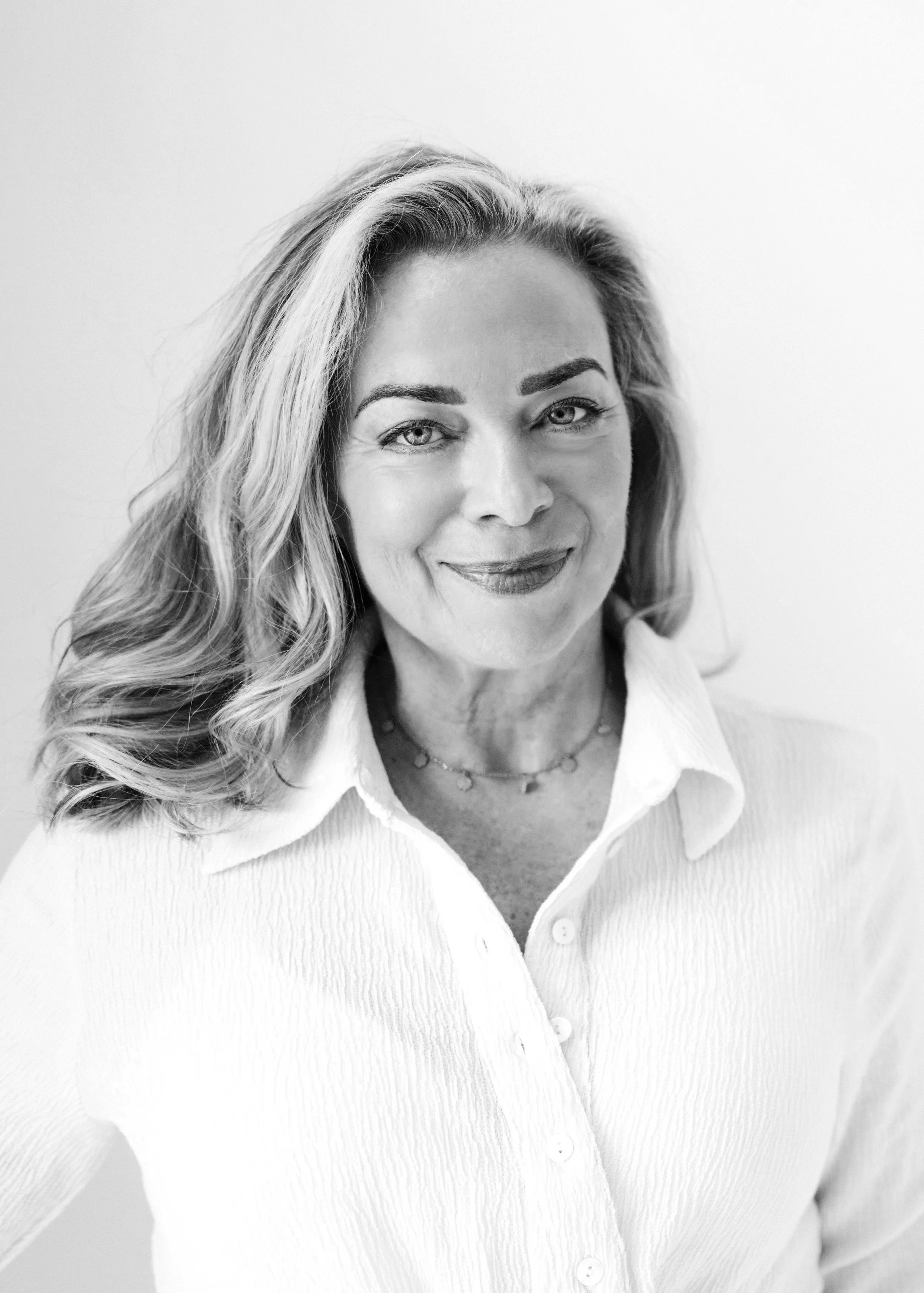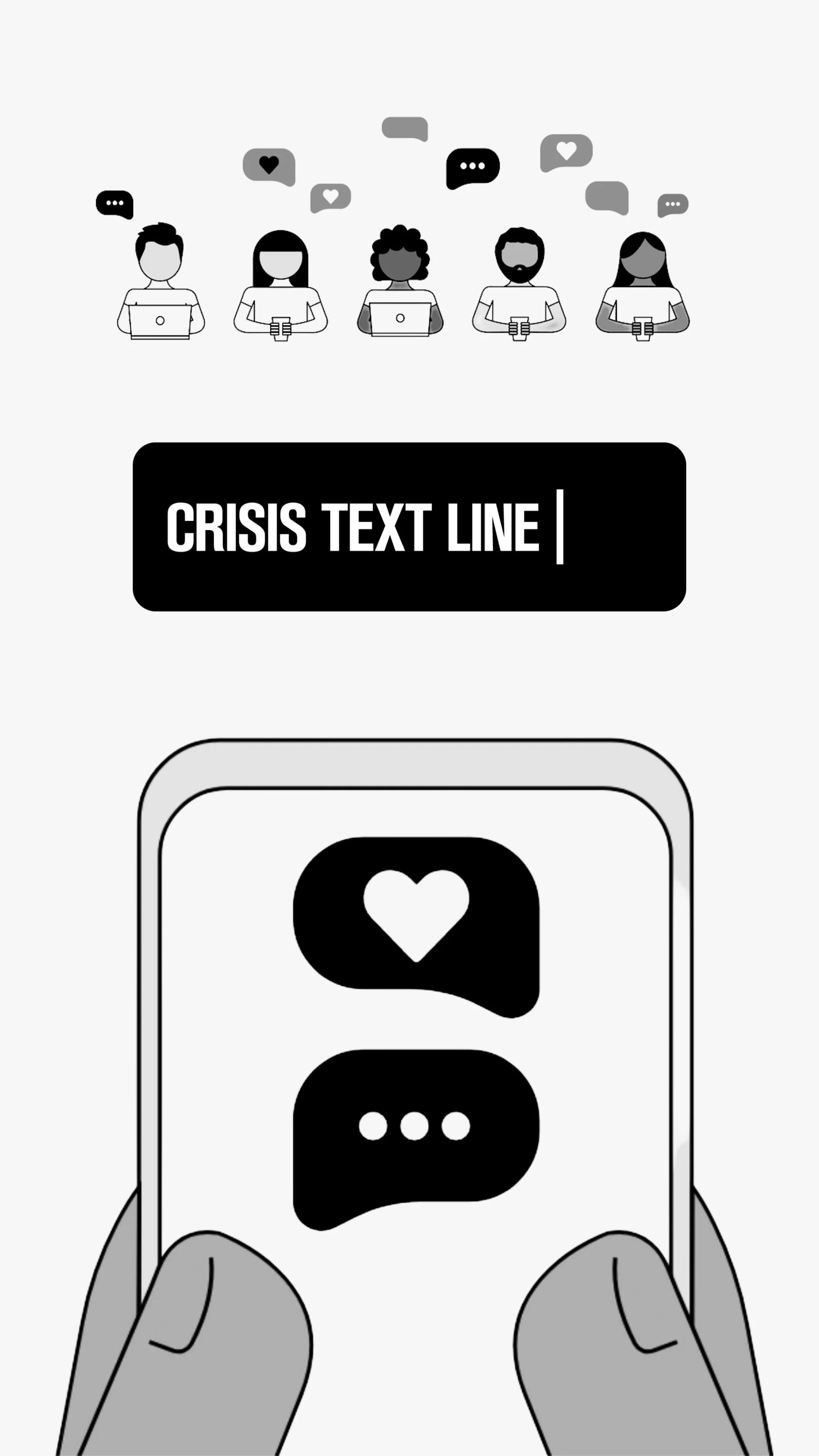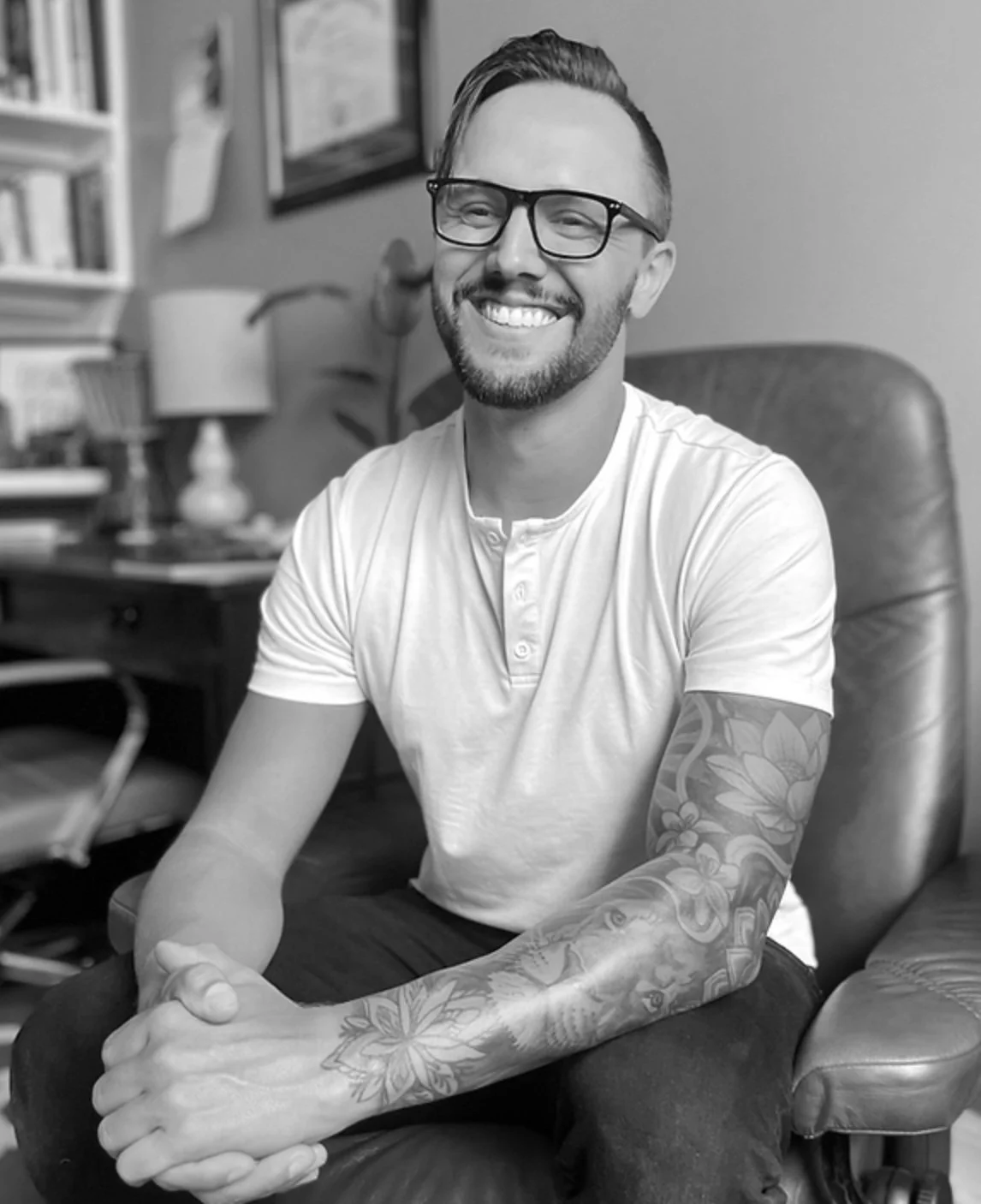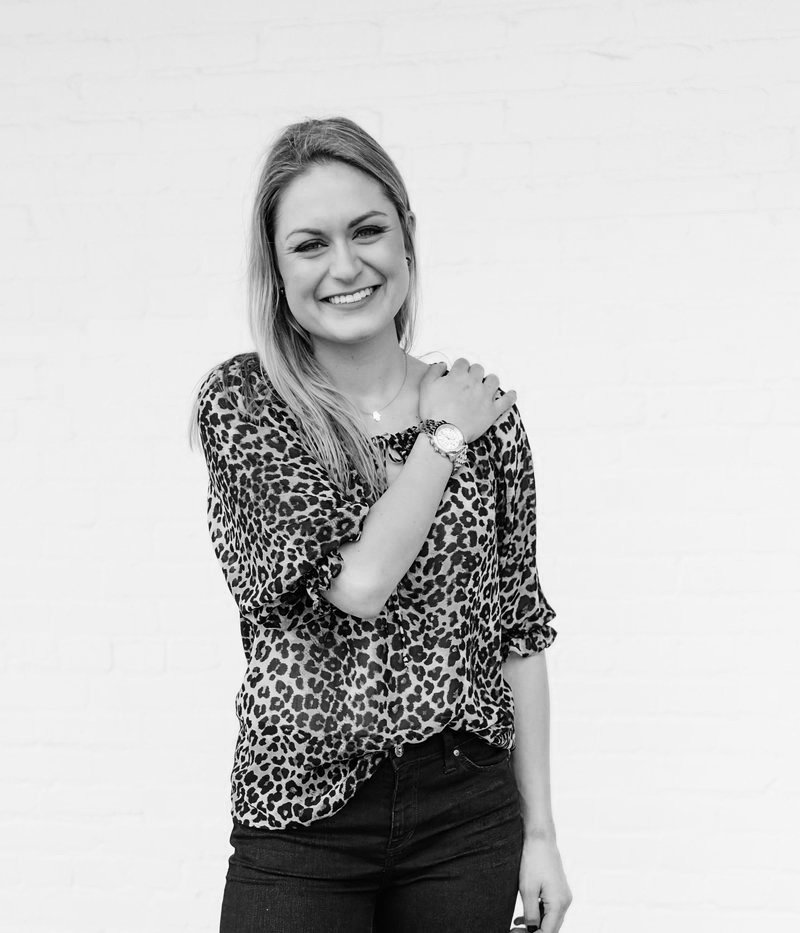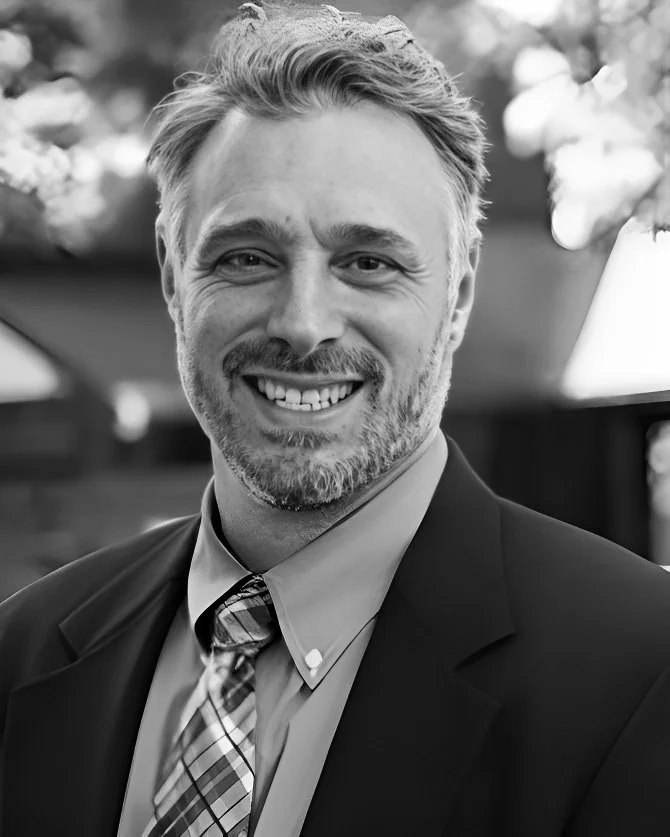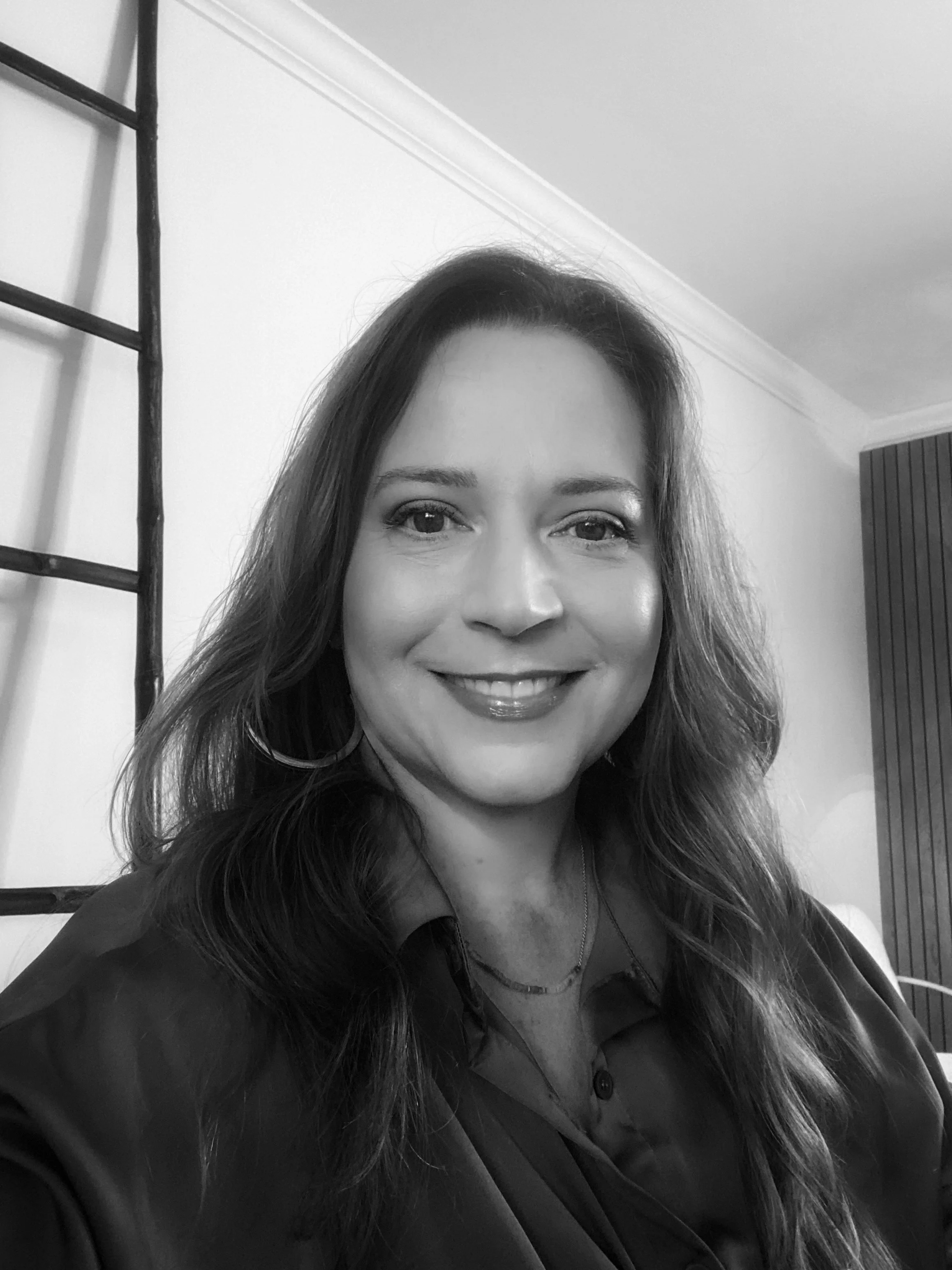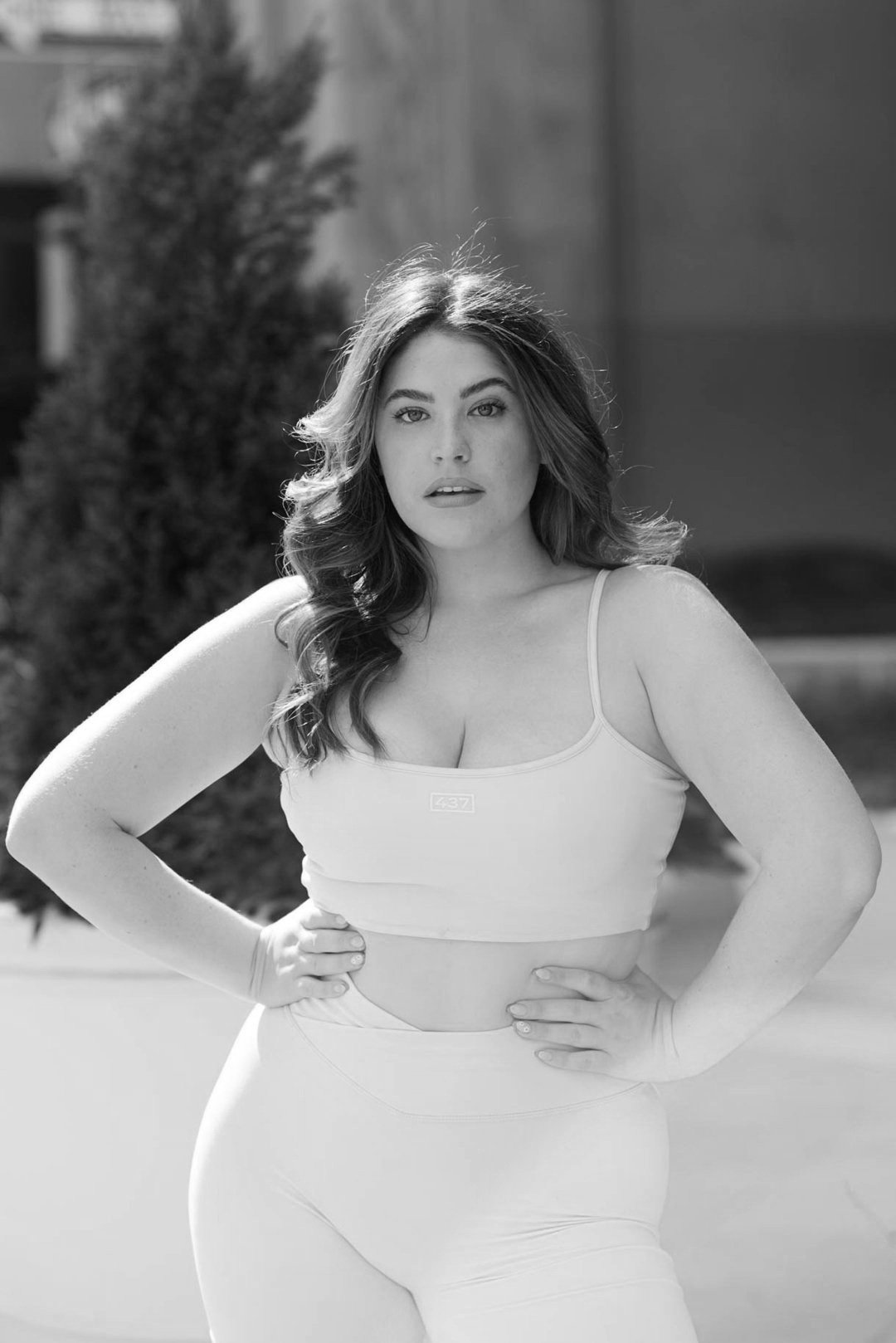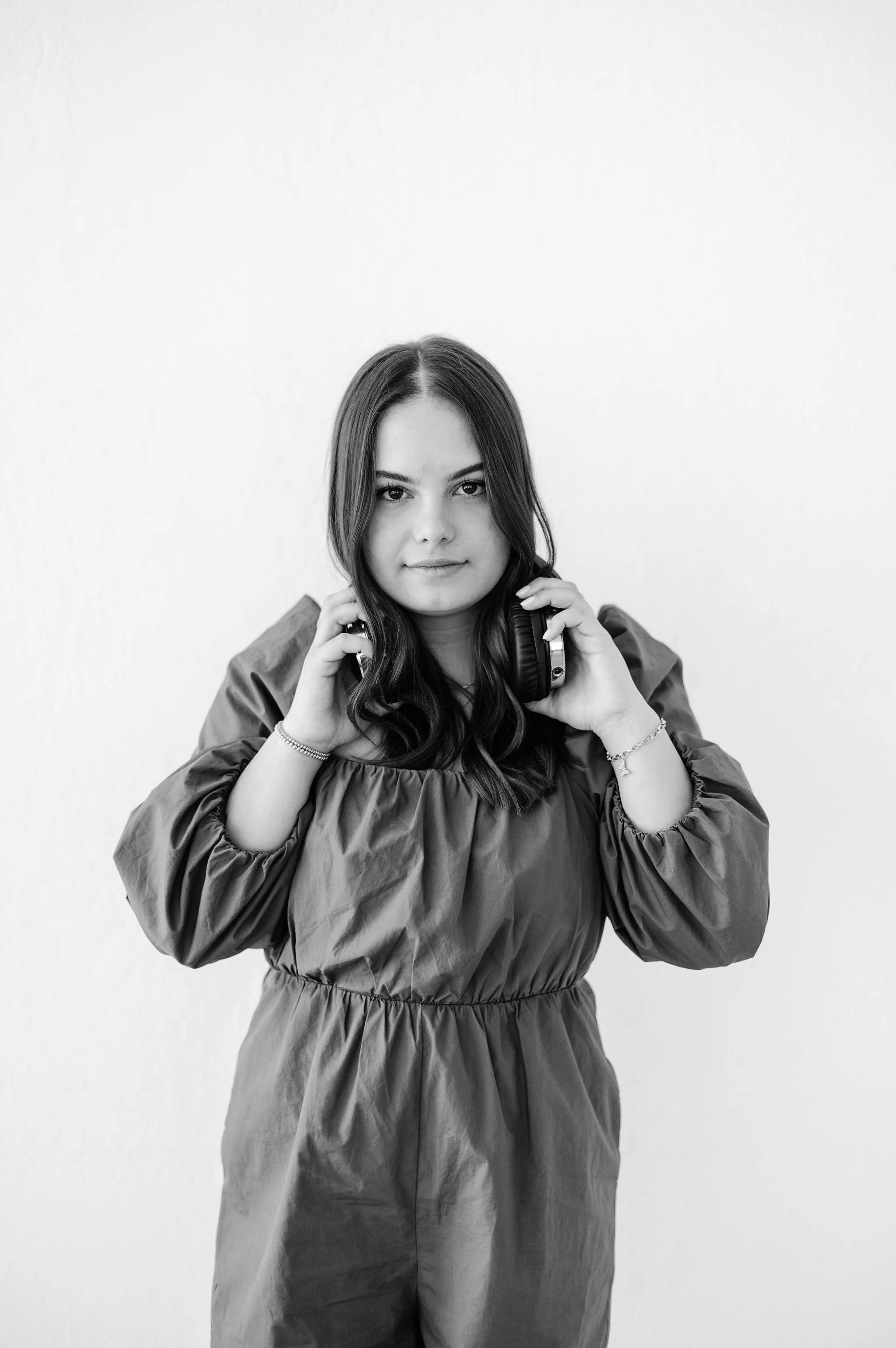173. Food Myths, Fear Foods, & Eating Disorder Treatment feat. Registered Dietitian Amy Dahl, MS, RD
listen to this episode:
Tune in and subscribe on your favorite platform: Apple Podcasts | Spotify | Stitcher | Google Play | Radio Public | PocketCasts | Overcast | Breaker | Anchor
Today's guest is Amy Dahl, MS, RD— a Registered Dietitian who has been working in the field for 15 years. She has been able to help many patients work towards improving their relationship with food by understanding all of the important and critical roles different types of food provide. We discuss what to expect when meeting with a dietician for eating disorder recovery, the often-overlooked health effects of eating disorders and whether knowing these effects can reduce disordered eating, common fear foods and food myths debunked, how treatment varies for people struggling with binge eating versus restrictive eating, ways that teens can create a healthier relationship with food, red flags that a teenager has an unhealthy relationship with food, how teens can support a friend or loved one who they suspect has an eating disorder, ways that parents can support their teen's eating disorder treatment, and how the recent popularity of Ozempic may be affecting body image and eating behaviors.
Culina Health's Instagram: https://www.instagram.com/culinahealth/
Mentioned In The Episode…
+ NYT Article: 'You Don't Look Anorexic'
SHOP GUEST RECOMMENDATIONS: https://amzn.to/3A69GOC
About She Persisted (formerly Nevertheless, She Persisted)
After a year and a half of intensive treatment for severe depression and anxiety, 18-year-old Sadie recounts her journey by interviewing family members, professionals, and fellow teens to offer self-improvement tips, DBT education, and personal experiences. She Persisted is the reminder that someone else has been there too and your inspiration to live your life worth living.
a note: this is an automated transcription so please ignore any accidental misspellings!
Sadie: [00:00:00] Welcome to She Persisted. I'm your host, Sadie Sutton, a 19 year old from the Bay Area studying psychology at the University of Penn. She Persisted is the Teen Mental Health Podcast made for teenagers by a teen. In each episode, I'll bring you authentic, accessible, and relatable conversations about every aspect of mental wellness.
You can expect evidence-based, teen approved resources, coping skills, including lots of D B T insights and education in. Each piece of content you consume, she persisted, Offers you a safe space to feel validated and understood in your struggle, while encouraging you to take ownership of your journey and build your life worth living.
So let's dive in this week on She persisted.
I think having an eating disorder is sometimes a very isolating thing. And sometimes it is just nice to know that there is somebody who is there. If you want to talk about it, you can, if you don't feel like talking about it, you know, they're not your therapist.
You could just sit with them , and be there for them, which is such a great [00:01:00] thing to do as a friend.
Hello, hello you guys and welcome back to She Persisted. I'm recording this at like six in the morning before I head to the airport, but I hope you guys are having a good winter break and we have a really fun episode for today that I hope you enjoy listening to. So our guest is Amy Dahl. She's a registered dietitian who has been working 15 years And she really specializes in eating disorder treatment. So we talk all about what to expect when you meet with a dietitian in eating disorder treatment. We talk about the health effects of eating disorders. We talk about fear foods and food myths. We talk about binge eating versus restrictive eating and how that impacts the treatment process.
We talk about creating a healthy relationship with food, red flags that you might have an unhealthy relationship, We also talk about how teens can support friends and loved ones who might have an eating disorder. We talk about ways that parents can support their teen [00:02:00] navigating eating disorder treatment, and then we also talk about, Ozempic and how that might affect body image and eating disorder behaviors, and In general, , beauty and societal standards. So, this was an incredible conversation, we covered so many topics, and Amy just has so much expertise in this area. I've been wanting to have a dietitian that works in eating disorder treatment on for a really long time, and so I'm so excited to bring you this resource, and I hope you enjoy this conversation as much as I did.
I'm also not going to talk to you guys until after Christmas, so I hope you guys have a Happy Holidays, and I will talk to you next Friday.
Well thank you so much for joining me today, Amy.
I'm so excited to have you. And she resisted to talk about an area of eating disorder treatment that I haven't heard a lot about. , and as we were talking about before we got started, it is such an integral part of Eden disorder and disordered eating recovery, but there isn't as much conversation, so I'm really excited to get.
All of your thoughts and insight on the process of working with a [00:03:00] registered dietitian or a nutritionist. But yeah, welcome to the show. Thank you so much for having me. It's such a fun experience. Of course. Well, to get things started, I would love to hear a little bit about your background and how you got into the registered dietitian and nutrition space.
And then specifically starting working with teens and young adults, , eating disorder treatments, because some dietitians work. with general patients that are maybe struggling with health issues or just want to improve their nutrition. , so how did you get into this specific part of the nutrition and dietitian space?
, like most dietitians I know, it was not like a direct
, I went to Boston College. I thought I was going to be a biology high school teacher. And then I realized, wow, that's like, really hard. So, , I backtracked a little bit and, When I was trying to figure out what I wanted to do, I had a [00:04:00] family member who had cancer and also diabetes. And I was watching her one night, , because the whole family needed to go somewhere.
And she started to have a episode. And I, I just found it so amazing how food was Directly used to treat somebody's medical condition, , in such a direct way. So, I decided to go to CW post, Long Island University. I got a second, , bachelor's and did my internship. And, , from there, I knew I, I never wanted to do weight loss.
. And I honestly did not think that like patient counseling was going to be a thing because I thought all Dietitians who counsel patients just did weight loss and I was like that's not for me So I worked in an ICU for five years And, very long story short, I ended up at a treatment center for eating disorders.
Once [00:05:00] I was there, I was like, this is where I'm supposed to be. I love this. Oh, that is so cool. When you were working at the eating disorder center, were you working with teens? Were you working with adults? What demographic were you interfacing with? I was working with, , teens and adults. different age ranges.
, and we did all different types of eating disorder diagnoses as well. So I worked at the PHP and IOP level, which I'm not sure what, if you're familiar with, it's, it's the step under residential. So partial hospitalization and intensive outpatient. That's what I did. Gotcha. Yeah. , for listeners that know that meeting with a dietitian is going to be part of their treatment plan or for parents that are listening that have just heard that their kid is going to go through this process and they're going to be meeting with a dietitian, what can they expect for this process?
Is this going to be a lifelong journey of meeting with a dietitian? Is there an intake process? For people that are [00:06:00] totally going into this blind, , What can you share about what to expect? Well, I think the first step that any parent should do is make sure that the professionals they are working with understand eating disorders because it is such, such a specialized niche little group.
, So make sure that you find someone who knows eating disorders, and many of the people I know that I work with, we only do eating disorders. So it's not like we do eating disorders and weight loss, because it's very different, you know, mindsets. So, , Definitely. And groups like the group I work with, Kalina, we have a whole bunch of very smart women who were very passionate about eating disorder treatment.
I like to describe eating disorder recovery as the game of chutes and ladders. So you know how shoots and ladders like as you go sometimes you hit like this amazing ladder and it's [00:07:00] amazing and you skip a bunch of rows and then sometimes you hit the slides and and you kind of take a few steps back, but you're always working towards that goal.
I think that's the best way to describe recovery, because it's not a linear process. There will be some bumps in the road, but if you have a great treatment team, like, you will get to that end. You know, and it's just the goal is like a little bit better than where you were at. So when you go into your intake appointment and you share your current state of affairs, whether it is you're struggling with restricting, maybe you're struggling with binging, Whatever behaviors are on the table, what is the process from there?
Are you coming up with a meal plan? Are you doing a complete overhaul? Are you just going to be mindful for a couple of weeks and see how things shift? Like what can patients expect to shift and change and work on when they start meeting with a [00:08:00] dietician? So I think it's different for everybody, right?
Because some people are just not going to be able to make those small changes. So the kind of goals we're going to set is just like, Eat something, you know, eat something. , and some people who may just be at a different stage of change, , or further along. You know, you can make more overall changes, , but it really depends on everybody.
So, really the first few sessions is just us getting to know each other. Trying to figure out like where are you at? You know, where are those struggles? Where do they lie and what kind of goals do both of us think are going to be important, right? Because sometimes the patients don't even understand how much some of the behaviors Could be negatively impacting them.
Yeah. So, it's kind of providing a lot of education and working together [00:09:00] towards making those changes. Can you speak to some of those impacts that would probably be helpful for everyone to be aware of? , whether they end up interacting with someone that is struggling with disordered eating, , or maybe down the line their parent and their kid is struggling.
What are some of these lesser known , kind of health correlations that are related to restricting or over exercising or binging, , beyond just what you initially noticed. Like, maybe you're more hungry, maybe you're so full, maybe you're tired. All these things that are under the surface or happen long term, , that can impact your health.
Well, we definitely want to make sure that everything, because there are a lot of silent things that are happening when you are dealing with eating disorders, , all of the organs kind of get hit. , the body does not have that energy it needs to run. So it's just pulling from all the muscles, your heart's a muscle, you know, it'll pull from your liver.
So we're looking [00:10:00] at the cardiovascular system, those labs that indicate if there's any. Liver damage, , and then we're working towards kind of correcting those and in all of the cases, it usually does include eating. That's really the treatment for all of those. sort of abnormalities. And for listeners that are not aware and haven't been through this educational part, of eating disorder treatment, how long does it take for these behaviors to have that impact on your health?
Whether it's related to the cardiovascular system or your organs start to deteriorate, , in their functioning because you're not getting enough nutrients. Like, how long does it take for that damage to start to happen? Well, I think that could depend on the severity. Of the restriction, right? , I don't know the data on the length of time it takes to cause like liver damage, but, , It's, it's something [00:11:00] we monitor for.
And I just want to mention that we do see that damage no matter where the person is in their body. , there was a really good New York Times article, , I think in November of 2022, or 2021 , the article was called, you don't look anorexic. and there's some new research that is supporting the fact that, , people in larger bodies who are.
Anorexic are as sick as those in smaller bodies. So looking for those, that damage does happen in the spectrum of weight for all of my patients. Do you find that as you start to educate on the health impacts that that can Almost be a deterrent from engaging in these behaviors and that can be helpful in the recovery process to understand the impact that you're having on your body, or it's not necessarily something that makes a huge difference?
, A lot of times it does because people don't understand the damage. They just think like, I'm dieting, you know, it's normal.[00:12:00] , but when you start to say like, this is what's happening and then this is what could happen if this organ does not start to repair. That really does make an impact. Another thing that a lot of the younger people I work with love is the education on what the foods do in our body.
A lot of people don't understand the Roles carbohydrates play and when you start talking about what they actually do it becomes a little less So I love watching that like light bulb moment like oh, that's why I have to eat bread. Yes can we talk a little bit about that with these foods that can be these fear foods whether it's like, , carbohydrates or fats or Even like right now, and this is maybe not as much eating sort of thing, but more kind of like orthorexia with like different oils in certain foods.
Like, what are the roles that those do play in the body because we've been eating them for hundreds of years at this point and they [00:13:00] do have a purpose. So to kind of de myth some of these, , mental conceptions that we have, what are these different roles that these things play? Yeah, so palm oils is getting a huge bad rap at this point, right?
Yeah. , and it's crazy. It's crazy. , I just made a Jeopardy game for some of my patients and we played it in session and one of the things was like, what do palm oils do? And, , it's like we should avoid the question I had was we should avoid palm oils because they are only bad and only do bad things.
But palm oils are high in omega six fatty acids and they are essential for brain just development and, you know, overall functioning. So they're called essential fatty acids because we need them and our body can't make them. So I don't know why palm oil is such a villain right now, But our brain runs on carbohydrates. It's [00:14:00] the sole source of energy for our brain. So anytime you're eating a carbohydrate, you are eating brain food, right?
People talk about blueberries and all those other kind of superfoods as brain food. Bread is legitimately Like brain food number one, , because our brain is what supports everything. So you're feeding your brain, you're feeding your whole, you're feeding you, you're feeding your personality. So, , there's a bunch of other roles.
I don't know how scientific you want me to get into. I'm going to drop a science bomb. No, I love it. I love it. What about things like sugar even, where obviously there are so many naturally occurring sugars and most of us have artificial sugars in various foods that we eat and that can be another kind of fear food.
What is the role that sugar plays in our bodily processes? I mean, sugar, our body doesn't say like, Oh, this sugar came from a tootsie roll. We're going to put it in the [00:15:00] sugar pile. Whatever source they come from and they break it down to that cellular. energy form ATP. So it's all doing the same thing.
You know, it's not good to have just Tootsie Rolls as your source of energy. , but it's not good to have just apples as your source of energy too. It's important to have a variety of All different types of foods. And then, what about protein? I feel like that can be another, , fear of food sometimes, especially if people get into these different patterns of like, being plant based, or they're vegan, or like whatever different restrictions have come into the picture.
What is the role that protein plays? Protein is really just Cellular way, we need all of those amino acids, , for a bunch of different functions and our body breaks those proteins down into those smaller, , building blocks. So we need, we need all the food [00:16:00] groups, fats as well. You know, they're broken down and they provide, , Like skin, you know, you remember in biology in high school, the phospholipid bilayer where our skin is made out of, that's important, so all of these things that we, everything we do during our day, we're using all those, , nutrients to kind of fuel.
And then for another thing that I feel like is very common is this idea of calories, and I think one thing that can be so helpful to understand is, A calorie is a unit of measurement and how much energy is in the food. Can you explain that for listeners who have never heard that before? Yeah, so a calorie is a unit of energy, right?
And like we fuel up our car when we wanna go on a road trip. That is what we're doing when we're eating. So if we're not eating those calories and we're restricting our body, can't do a trip from New York to Florida, it's [00:17:00] gonna go from. Maybe the tip of Jersey to the southern tip of Jersey. , before you like break down and you need to fuel it up again.
So, , that's really what it is and people are so fearful of it. But really that is, that's the energy. It's the same thing, literally the same thing as going and getting gas for your car. Yeah, a hundred percent. , circling back to the process of working with the nutritionist, is the approach different when you are struggling with binging versus restricting?
I know you talked about most of the time the key thing to introduce is just eating and introducing these foods, making sure that you're getting all these food groups. But is there a different process when it comes to education or setting goals, , or even how closely you're working with a therapist, , or your primary care doctor, when you start to meet with a dietitian and you come struggling with binge eating disorder, , versus with restricting foods.
Binge eating [00:18:00] a restrictive process because most binge eaters will restrict for say, hours at a time, right, where they'll restrict a specific type of food. They won't allow themselves to have that food. And when then their body gets access to their food, that food, or food in general, , it just kind of goes overboard.
So actually, They're very similar goals when I'm working with somebody with anorexia or binge eating and that we want to make sure that you're fueling your body Throughout the day, right? You're not waiting until six o'clock at night to have that first meal then kind of working to get more comfortable on the foods that you're binging on because usually there's a lot of guilt surrounding those foods and just kind of getting used to eating those.
So when you're faced with a slice of pizza, you could have two, three slices of pizza [00:19:00] instead of, you know, a much larger portion. Absolutely. And then I guess as a similar note, but just for teens in general, how can they encourage that healthy relationship with food? Because when you hear the statistics about how many teens have been on a diet or tried to diet or will develop an eating disorder or struggle with body image, it's absolutely insane, especially with teenage girls.
I remember there was a recent TikTok trend where it was like guys are always thinking about the roman empire and it was like the female version of that is Body image and dieting and it was just so sad To think about how many of us relate to those thoughts or that experience throughout our whole lives So for teens that are just starting to develop that relationship with food as they're choosing their meals and they're picking what they're having for lunch at school rather than just this is what's on my plate, this is what was packed for me, this is what I'm eating.
How can they encourage that [00:20:00] healthy relationship and stay away from any, almost like, risk factors when it does come to developing an eating disorder or a disordered eating? Yeah, I think, I think having conversations with your friend group sometimes can be helpful. And I know that it's really hard.
I can say that, but it's actually a hard thing to do. , I know a lot of the kids I work with, like there's a lot of body talk within their friend groups. , a lot of talk about people's body shapes and sizes. And sometimes it can be helpful to just like kind of have a conversation about. The terminology and the wording that people use, , I think if you do feel like you're having problems eating certain foods or really struggling to eat in general, it's really important to talk to somebody you trust.
, a lot of schools have counselors or your parents. And also, one thing you mentioned TikTok is, TikTok is rough, , there's a lot of stuff out there [00:21:00] and even just myself having so much education, it's, hard to watch some of these videos knowing that so many young people are watching them and then thinking they are true.
, because they're rewiring those neural pathways by watching it continuously. So I do like to encourage people to limit their social media use, or at least follow some, solid scientifically.
Yeah, and there are a lot of really great ones out there. There are a lot of incredible people that are either debunking these different videos or saying, that is not healthy, that's not what we're doing, , or even just encouraging healthier self talk and helping introduce that if that's a foreign concept to you.
So there's a lot of creators out there and it absolutely is about being a critical consumer and choosing to make that a positive space. And like you talk about. Reinforcing those neural pathways that lead to a healthier relationship and a positive, , body image [00:22:00] and all of those things. You mentioned when you start to experience maybe changes in, , your relationship with food, it can be helpful to talk to someone.
What are some of those red flags that teens should be aware of, or parents should be aware of, of when it might be time to get support or get help, or you're kind of veering on that line of this isn't as healthy as it could be. I mean, I think if you start to really, the more you talk about foods being like in a good category or a bad category, that's kind of a red flag, , If you see someone who's just refusing to eat a certain type of food especially if you know that they like loved chocolate cake and now they're absolutely refusing to eat it, that's, that's a pretty big red flag.
if you notice somebody is not eating during. Long stretches of time during the day or at certain times Like my favorites that I can't eat after a certain time. It's like why What is your body stop doing?[00:23:00] socially like if you can't go out with your friends to a dinner if you're Only eating in your room, can't eat at the dining room table.
Those are all pretty big red flags that, you know, would be good to talk with somebody. I think therapy as a parent, because I'm a parent, and I think it's really good. , there's a lot of things that younger people right now are doing and dealing with that we never had to deal with. So, even as a parent having support, you know, and And getting the support they need and seeing if maybe they should get their child's support.
Yeah, absolutely. , you mentioned noticing friends maybe aren't eating for a long period of time or are restricting certain food groups. That is such a hard conversation to have and I think something a lot of teens struggle with. What do you recommend? Do you recommend that teens bring that up and say, I'm here for you.
I notice you're not your [00:24:00] normal self. How do you recommend, , that Teens or even as an adult, how can you support someone that is struggling with their relationship with food because it in many ways seems so personal. Yeah, I mean, that's what that's a hard thing, , because another teen is not going to be.
Really knowledgeable on how to lead that conversation. , if, you know, if there is somebody in the school they know they could talk to, like a therapist, that would be good. , even like, bringing brownies to a table and be like, Come on everybody, let's have a brownie, you know, and just.
Being really supportive and sometimes you could just be, , providing support by not directly talking about it by telling your friend, you know, you could talk to me about anything, I know this is really hard. Sometimes I struggle with this. What about you, , so you're not directly saying, I think there's an issue, but opening up the lines of conversation.
100%. I also think as you start to go into the treatment [00:25:00] process and into the recovery process, it can feel like so much of your life is consumed by that, you're having a lot of these conversations, you're getting a lot of support, and so as a friend, being that kind of break and escape from that, to laugh and have fun and like just have normal interactions that aren't talking about like, you know, What you're eating or what have you done all day today?
What thoughts are you having? Like having those friends as a resource can be so great and so supportive. And I think it's something that as a teen, you can absolutely offer because like you mentioned, you're not a quiff and you shouldn't be expecting to lead these interventions. In fact, that's like the worst thing you can do.
So being a safe space and, , like a positive light in that person's life can really do so much good. Yeah. And I think having an eating disorder is sometimes a very isolating thing. And sometimes it is just nice to know that there is somebody who is there. If you want to talk about it, you can, if you don't feel like talking about it, you know, they're not your therapist.
You could just [00:26:00] sit with them and, and be there for them, which is such a great thing to do as a friend. Yeah. You mentioned for parents that seeing a therapist can be really helpful, especially when navigating when you should get support and get help. Are there other things that you recommend to parents that want to support their teen, especially once they're in treatment and navigating the process, when it comes to planning family dinners, , or navigating going to school all day and not seeing them and not knowing like what's going on and what's happening or having Conversations and bringing up that you're worried about certain behaviors.
How do you Kind of advise parents go about that process Yeah, i've definitely recommended group therapy a lot. There's a lot of different resources for caretakers or parents of people with eating disorders, I think those are really great because sometimes When you yourself are such in the diet culture mindset it, you can, , without realizing it [00:27:00] almost be causing a higher risk of relapse.
So I think those group therapy type of environment allow people to sort of talk through their own. food thoughts. if you're seeking out a dietitian, definitely make sure this is something most people don't know. The registered dietitian is different than a nutritionist. So you want to make sure you have a registered dietitian, one particularly who specializes in, , eating disorders.
There's also a therapist that specialize in eating disorders too. So, , just having that additional support, , can be so helpful just in the overall. Path of recovery. Yeah, it's interesting. I do feel like especially recently there has been more of that dialogue around the impact that parents can have on kids and this idea of like almond moms and how it can impact you as an adult or as a teen when you kind of pick up on these different rules and cues and behaviors that your parents have.
And I think What you mentioned with having parents, in a [00:28:00] support group and you're able to recognize, Oh, I do that and maybe that's not so effective or maybe I could improve in that area. I think is a really great suggestion and I think it's great that we're having those conversations and hopefully doing it in a really compassionate way because again, Parents are doing this for the first time as well, and they don't necessarily Know that it might be having an impact on their kid But I love that you brought that up that parents own behaviors can also have an impact on their teens as well Yeah, and I mean, I need to say this, if you are knowledgeable in eating disorders, this is something you can do just in your own friend group.
I know sometimes my friends will roll their eyes when they make diet comments because I am like, no, you're not gonna do that today. No, not today, yeah. Make today friends. Yes. No, I think that's so important and I think, that's huge and , you can do that, like, jokey boundary where you're like, this isn't gonna help any of us, this is not effective, it's not gonna happen, , and I think, again, it creates that really safe space for, , your friends to [00:29:00] go and lean on you for support, , and have those positive relationships in their life.
I mean, food is such a, it's such a bonding, cultural, there's so many great things about food that when you start saying, like, it's bad, you take so much joy out of life, you know? Like, think of all the times, all the memories I know I have growing up. So many of those revolve around food, and I think people need to remember that, that food is, , a powerful, amazing thing.
Yeah, as we're talking about this, I'm thinking about , especially with social media, the introduction of like ozempic and semaglutides and how people are approaching body image and diet culture, because it's so different.
It's becoming I don't want to say like artificial, but you are introducing these artificial things. You're not just like adding or removing foods. Do you think that we'll see a difference in like the behaviors people are engaging in or the thoughts they're having or body image because the people that [00:30:00] they're looking up to like they themselves are changing as well.
It's a completely different landscape and it's not all created equal. But I mean, of course, these aren't necessarily new people have been doing diet pills and like crazy trainers and diet plans for a long time, but , what are your thoughts there? I'm not a doctor, , but I am married to a doctor, and he sees a lot of, , complications from like the ozempic, , pancreatitis. , we don't have a lot of long term data, I don't think, and people who are using it to lose weight, I don't think they realize it's, it's not like a, you take it, you lose weight, and then you will forever be in that body.
It's, you're on this medication. Long term, there's some very significant side effects to it and, , and then it's just going to kind of fuel that eating disorder circle again, you know, that the drug may have, like, taken you out of so. Yeah, I have a lot of thoughts on [00:31:00] those drugs. Yeah, it's really interesting because people are like, oh the food talk is gone.
I'm allowed to live a normal life. Like I'm completely able to focus on these other things. But when you think about the societal impact, especially on the younger generation, and it's like you pick your poison of you talk about it and then these teens Or young adults think that that's what they have to do to reach that ideal or you don't talk about it and then teens and young adults and people of all ages are like, well, why don't I look like that?
And it's a really challenging position to be in. Yeah, I mean, it does take some of the noise out, but it doesn't take the noise out forever. , and really like, so the work I do with people is. I try to take some of the noise out, right? Like, some of that voice when you have a slice. I always go back to pizza because people hate on pizza so much.
I love pizza. I love pizza. I love pizza too, but like, if you become [00:32:00] bored of eating pizza, there's not going to be that noise when you have a slice of pizza. But when you stop eating it because you are taking a medication, and once that medication's gone, you're going to want to eat a lot of pizza. Mm hmm.
Yeah. No, it's, it's very interesting. And like, as you say that, it's so funny, especially being in college, when I pick all my own meals, I'm like, I will now be eating bread and cheese in another form, whether it's like mac and cheese, grilled cheese, quesadilla, pizza, I'm like, they're just all great.
They're all amazing and incredible. , there is no better combination than bread and cheese. Exactly. Exactly. It's unbeatable. Maybe fish and rice and seaweed, but. I have to stick with bread and cheese. It's , my favorite. Even when I think of like, chocolate and peanut butter, I'm still like, but bread and cheese has so many forms in it, it's so good.
Yes. It's incredible. We drink different ways. Yes. Exactly. Well, this has been incredible. I know that everyone is going to walk away with so many tips and I wish that this conversation was just part of health class, whether it was how these different [00:33:00] nutrients are processed through the body, why we need these different food groups, what to look for, how to support your friends, all that kind of stuff, which I know as in middle school, I didn't receive and it would have been so helpful to be aware of.
So thank you so much for being willing to share all of this. And seriously, thank you for having these types of conversations because I just think it's amazing that people are talking about mental illness with more ease. So really, I want to applaud you for having this podcast and doing all the good things.
Thank you so much. If people want to work with you, work with Kalina, where can they find your information, , and also resources that you guys have? Yeah, so we are at kalinahealth. com. , And I can be reached through info at kalinahealth. com. Perfect. So, yeah. [00:34:00] But I work with a bunch of amazing RDs, so we're all so happy to work with anybody who wants to work with a relationship with food.
Amazing. I will put all that in the show notes and the New York Times article as well, and I think having a resource like Kalina is so helpful because like you mentioned, Having a registered dietitian is different than working with nutritionists, and it's important to have one that specializes in eating disorders, and being able to have a resource where you know, okay, I can find a clinician that specializes in this specific area is really a game changer.
So thank you guys so much for doing this. Yeah, and I do want to mention we do take almost every type of insurance, which It helps so much when people are in the recovery space, they realize how important insurance coverage is. So, I'm really lucky to work for a company who provides such great care for all the clients.
Yeah, I love it. Well, thank you again. This has been absolutely incredible. Yes. Have a good day. Thank you for having me.
Sadie: Thank you so much for listening to [00:35:00] this week's episode of she persisted. If you enjoyed, make sure to share with a friend or family member, it really helps out the podcast. And if you haven't already leave a review on apple podcasts or Spotify, you can also make sure to follow along at actually persisted podcast on both Instagram and Tik TOK, and check out all the bonus resources, content and information on my website.
She persisted podcast.com. Thanks for supporting. Keep persisting and I'll see you next week.
© 2020 She Persisted LLC. This podcast is copyrighted subject matter owned by She Persisted LLC and She Persisted LLC reserves all rights in and to the podcast. Any use without She Persisted LLC’s express prior written consent is prohibited.




